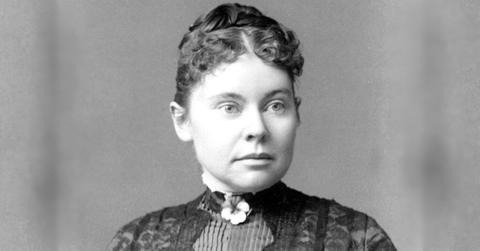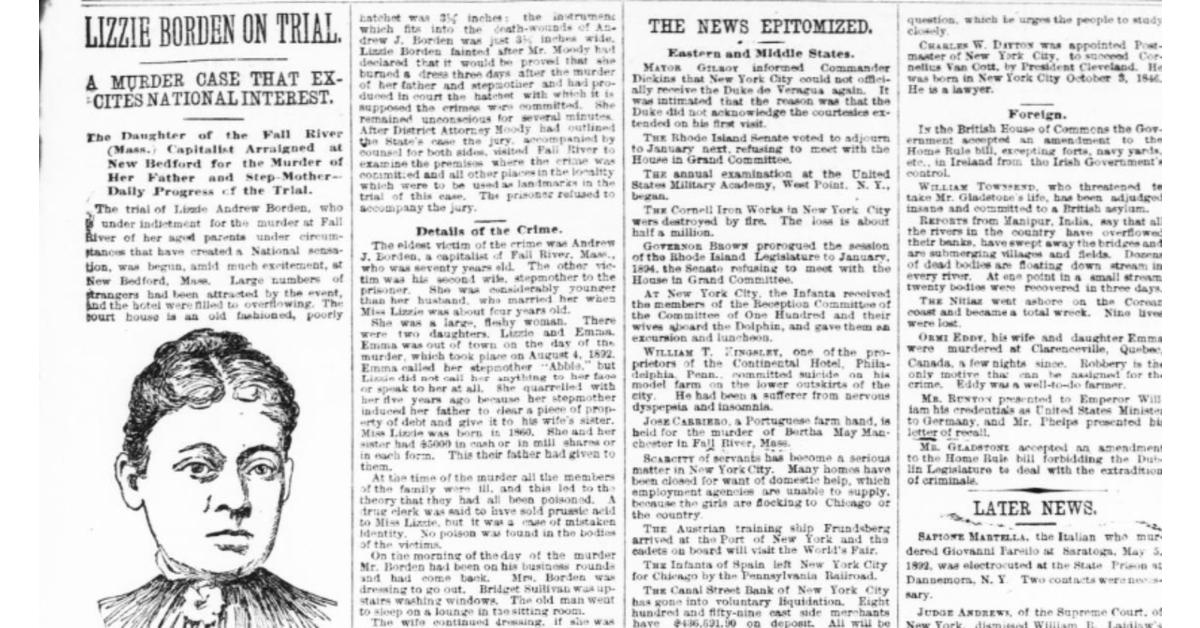The Smithsonian Says Lizzie Borden Got Away With Murder — Why Was She Acquitted?
"She was not without defenders."
Published Oct. 17 2025, 4:04 p.m. ET
Netflix has officially announced Ryan Murphy's fourth season of Monster. The newest anthology centers on Lizzie Borden, a controversial figure who was ultimately found not guilty of murdering her father, Andrew Borden, and her stepmother, Abby Borden, on June 20, 1893.
A question that still persists despite her trial's verdict is: Was Lizzie Borden actually guilty?
Was Lizzie Borden guilty?
There are many who would argue that she was indeed acquitted of Andrew and Abby Borden's 1892 murders, like the Smithsonian, which plainly states the woman indeed "got away with murder."
In an article penned by the institute, the gruesome nature of their deaths was depicted. 64-year-old Abby was struck approximately 19 times by a hatchet.
Lizzie's father's face was hit around 10 times, leaving his face an unidentifiable mess. The scene's brutality was encapsulated in a poem that features hyperbolic verbiage and attributes Lizzie as the menace that cut Andrew and Abby's lives short.
Lizzie Borden took an ax
And gave her mother forty whacks
When she saw what she had done
She gave her father forty-one.
The Smithsonian goes on to state that the social dynamics of the town in which they occurred played a large part in Borden's acquittal. "Cultural, religious, class, ethnic and gender divisions ... shaped debates over Borden's guilt or innocence."
Consequently, these murders became a subject of national concern and ultimately drew "the whole country into the case." As highlighted by both the Smithsonian and Famous Trials, there didn't seem to be a motive for Andrew and Abby's murders, unless one considers that Lizzie stood to inherit the vast wealth Andrew had accumulated.
Initially, after the bodies of the two were found, police arrested an innocent Portuguese immigrant. But further questioning of Borden's account of the murders began to show inconsistencies in her stories.
Moreover, they began to highlight a disdain Lizzie Borden had for Catholic immigrants in the area. Then there was the fact that Lizzie's father, Andrew, was a successful business owner, but still opted to live in a modest area of town. Lizzie had purportedly wanted to move to a section of Fall River known as "The Hill."
This section of Fall River wasn't just known to be more affluent, but it also sported a significantly smaller concentration of Catholic immigrants. Subsequently, her case became one that represented a cultural shift. Authorities who investigated Lizzie's whereabouts on the day of the murder unearthed several inconsistencies with her story.
Furthermore, it was revealed that Lizzie had attempted to purchase poison the day before the murder. A family doctor assiduously defended the 32-year-old, stating that he had prescribed her morphine prior to the discovery of Andrew and Abby's daughters. The medication, he said, was to help Lizzie sleep and may've added to the confusion about her whereabouts on Aug. 4.
Additionally, this mortification presumably extended to her actions on the day of the murder and the roundabout way she sought help upon discovering Andrew's and Abby's bodies. Then there was the fact that Emma Borden, her 41-year-old sister, advocated on Lizzie's behalf, stating that there wasn't a motive for her to kill her father and stepmother.
Women's groups also took to Lizzie's aid, stating that she was being subjected to unfair treatment that wasn't fitting for a lady. Especially for one of Lizzie's social standing. They couldn't conceive that a Victorian woman of good breeding would ever commit such a heinous act. In fact, she was even referred to as a "Protestant Nun."
The preliminary hearing at the district level thought the facts far outweighed these arguments, and Borden's sentencing was moved up to the Superior Court. At this juncture, however, Fall River juries were excluded from the proceedings. And Borden was ultimately judged by Protestant peers.
The Smithsonian stated that Borden's acquittal by the jury was more than likely a consequence of prejudice in her favor. In the outlet's recounting of events, it was stated that jurors spent an hour in the deliberation chambers to seem as if they didn't make a hasty decision.
So Lizzie Borden wasn't found guilty, and no murder weapon with blood was found on the premises of her home. It seems that the general consensus was that her uneven testimony and the politicization of Andrew and Abby's murders got her off the hook.

